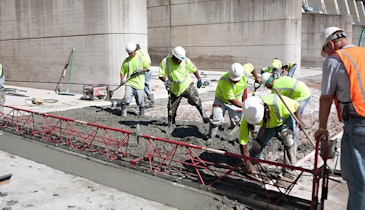Citizens of Puerto Rico generally don’t trust their tap water, according to a new report by NPR, largely due to fears that it’s contaminated with elevated lead levels.
Nearly the entire population of the island (97 percent) gets its water from a system that has failed a Lead & Copper Rule requirement in the past few years. To put that figure in perspective, the next worst offender was New Jersey at 35 percent of the population.
Puerto Rico’s water authority has piled up the fines and violations for decades, says NPR, for failure to test tap water for bacteria, chemicals and other contaminants like lead.
“Virtually everyone on the island is getting water from systems that violate testing or reporting requirements,” Erik Olson, a senior health policy advocate at the Natural Resources Defense Council, tells NPR. “It’s sort of a see-no-evil, speak-no-evil kind of situation where if you don’t test the water as the law requires, you’re not going to know if you have a big problem.”
Read the whole story here.
Florence Floods Coal Ash Dumps and Hog Farms, Says AP
Floodwaters from Hurricane Florence have overtaken coal ash dumps and some hog farms in North Carolina, spreading waste throughout the environment.
Environmental regulators say a number of manure pits at large hog farms have failed and officials are closely watching a breach in a Duke Energy coal ash dump near Wilmington.
Photos published by Associated Press show submerged hog waste lagoons, and other photos taken by Cape Fear River Watch show gray water spilling from the coal ash landfill and flowing into Sutton Lake.
Minneapolis Utility Fees Will Rival Property Tax Costs
The Star Tribune reports that utility fees in Minneapolis now rival the cost of property taxes for living in the city, and those fees are expected to increase over time due to aging infrastructure.
If the city council approves the budget as it stands, the average homeowner in Minneapolis will pay $1,249 next year for water, wastewater, storm drainage and garbage collection.
Sewer Work Damages Homeowners' Property in Montana
Homeowners in Fort Smith, Montana, are complaining that a construction company hired by the city to replace some sewer lines has been destroying property without fixing it.
One homeowner reported the crew tore up his yard, ripped out roots from his mulberry tree and damaged his fence. After voicing his concerns on social media, he found out he wasn’t alone, and that other residents noticed similar issues.
After hearing about the problem, city officials told KFSM News it would get fixed. “It will get repaired one way or the other — I promise these property owners that will happen,” City Director George Catsavis tells the news station.






